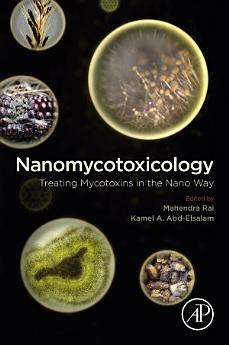Nanomycotoxicology: Treating Mycotoxins in the Nano Way
About this ebook
About the author
Prof. Mahendra Rai is a UGC Basic Science Research Faculty Fellow and former Head of the Department of Biotechnology at Sant Gadge Baba Amravati University, India. He is currently a senior visiting professor in the Department of Chemistry at the Federal University of Piaui (UFPI), Brazil. His areas of expertise include microbial biotechnology and nanobiotechnology, focusing on the green synthesis of metal nanoparticles using fungi and their applications as nanoantimicrobials against pathogenic microbes. His research is interdisciplinary, integrating microbial biotechnology with nanotechnology. Professor Rai has received several prestigious awards, including the Father T.A. Mathias Award from the All India Association for Christian Higher Education and the Medini Award from the Government of India. He has participated in multiple international collaborations and has held visiting positions at various institutions, including the University of Geneva (Switzerland), Debrecen University (Hungary), and Nicolaus Copernicus University (Poland).
Prof. Kamel A. Abd-Elsalam, Ph.D., is currently a research professor at the Plant Pathology Research Institute, Agricultural Research Center, Giza. Kamel earned his Ph.D. in Molecular Plant Pathology from Christian Alberchts University of Kiel (Germany) and Suez Canal University (Egypt). Dr. Kamel’s research interests include developing, improving, and deploying plant biosecurity diagnostic tools; understanding and exploiting fungal pathogen genomes; and developing eco-friendly hybrid nanomaterials for controlling toxicogenic fungi, plant diseases, and agroecosystems applications. He published 20 books related to nano-biotechnology applications in agriculture and plant protection. Since 2019, he has served as the Editor-in-Chief of the Elsevier book series “Nanobiotechnology for Plant Protection. He also serves as the Series Editor of the Elsevier book series “Genome Modified Plants and Microbes in Food and Agriculture.






